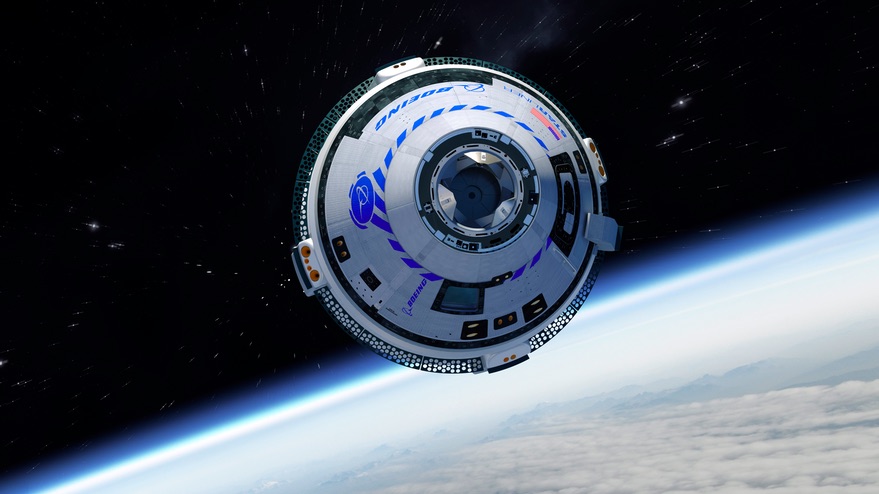Products You May Like
WASHINGTON — A NASA safety panel said that while Boeing was making good progress on implementing changes to its CST-100 Starliner commercial crew vehicle, it had doubts that work could be done in time to allow another test flight this year.
At an Oct. 1 meeting of the Aerospace Safety Advisory Panel, committee member Donald McErlean said Boeing was making “substantial progress” on preparations for Orbital Flight Test (OFT) 2, a second uncrewed test flight that the company said earlier this year it would fly after the original OFT mission last December suffered a series of problems.
He said the Starliner crew module that will fly the OFT-2 mission is about 80% complete and its service module 90% complete. Other components for the mission, including its Atlas 5 launch vehicle and a spacecraft adaptor, have either been delivered or are being completed.
NASA and Boeing announced Aug. 28 that the OFT-2 mission would launch no earlier than December. It will be followed by a Crew Flight Test (CFT) mission, with three astronauts from NASA and Boeing on board, no earlier than June 2021. If those missions fly as scheduled and are successful, Starliner could begin regular crew rotation missions to the International Space Station at the end of 2021.
That schedule, though, is subject to resolving recommendations by a joint NASA-Boeing independent review team that investigated the problems with the OFT mission. That team provided 61 recommendations, primarily dealing with spacecraft software and “mission data loads” for Starliner. It later provided 19 additional recommendations involving a communications problem Starliner experienced during the OFT mission.
McErlean said of the 61 original recommendations, 27 were classified as “mandatory” to resolve before the next mission, while 13 were “highly recommended” to resolve before the next flight and the other 21 were considered a lower priority. Of the additional 19 recommendations, 15 were considered mandatory and 1 highly recommended.
However, he said, “Boeing has committed and is working towards correcting all of these items prior to OFT-2.” That requires, he said, working with the independent review team to both fully understand the recommendation and to ensure that corrective actions meet the intent of the recommendation.
That effort involves “a very intense and significant amount of work,” he said. “We continue to worry, and show a source of concern, as to whether or not their progress towards final resolution will, in fact, meet the current evolved schedule.”
A Boeing spokesperson told SpaceNews Oct. 2 that the company has either completed or is in the process of completing all the recommendations from the independent review. “This work will be completed prior to our next flight,” the company said.
That work includes implementing 95% of all software-related recommendations in preparation for upcoming end-to-end testing. More than half of the recommendations regarding to the communications system are also complete.
During the ASAP meeting, other members noted that NASA was applying some of the recommendations from the OFT investigation into planning for its exploration programs, such as improved software testing for both the Space Launch System and Orion. The panel endorsed that effort.
“There are many lessons learned that can benefit both ongoing programs and many of the new efforts being initiated,” said Patricia Sanders, chair of the panel. “Instituting a formal review process will ensure that lessons learned both in development and during operations from the commercial crew providers, Boeing and SpaceX, can benefit other agency programs and future commercial partners.”
